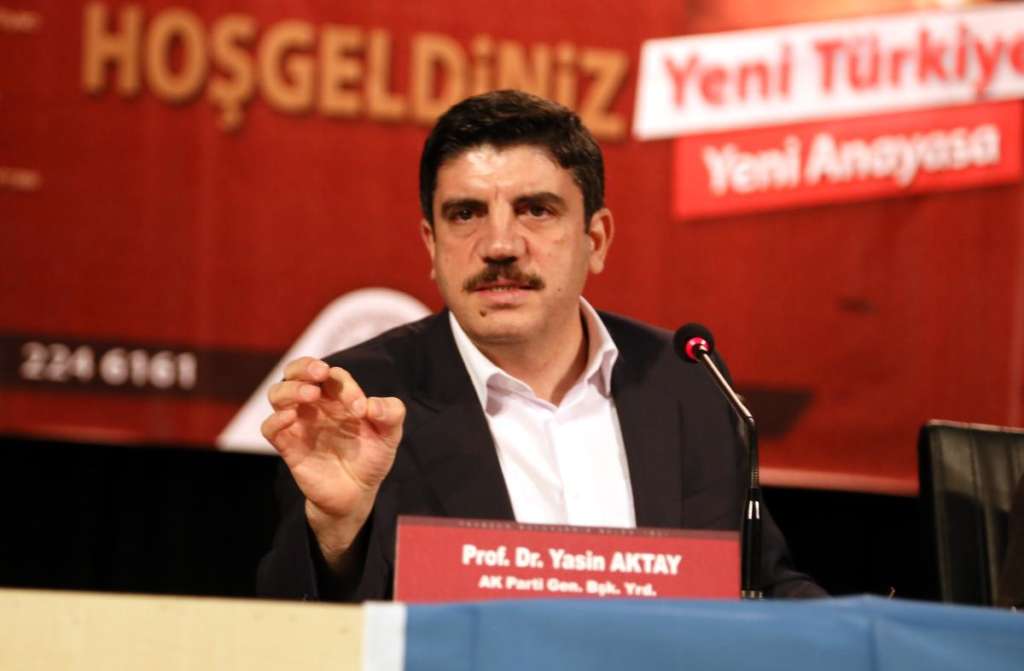Ankara- Heated controversy stirs up when Turkey’s agenda crosses with the ruling Justice and Development party, especially on pitches broaching political democracy.
Recent discussions on amending the national constitution and the present counterterrorism policy receive the most of national debate’s attention. Ankara’s foreign policy on touchy regional issues such as Syria and Iraq has also been focused on by public discussions.
The majority of the republic’s popular vote backs President Recep Tayyip Erdogan’s vision for Turkey, and the idea of a presidential system, considering that the opposition has effectively failed in seeing through and trusting its own agenda, Justice and Development party’s Yasin Aktay says when speaking to Asharq Al-Awsat.
Turkey’s constitutional authority has long been subject to discussion, namely dating back to Turgut Ozal’s time in power. Former President Ozal, 8th President of Turkey from 1989 to 1993, stressed that, at the time, the republic was in need of a presidential system that would save the country from internal political chaos and ensures social, economic and security stability.
In such a system, the party which secures a majority of the public vote would form the government and control both executive and legislative authority, and such a system goes against democracy, said Aktay.
A presidential system is a system of government where its head is also head of state and leads an executive branch that is separate from the legislative branch.
A coalition government will only influence political stability; President Erdogan runs Turkey along with the guidelines of a presidential system which is considered an exceptional case given that the July 7 elections had threatened the chances of Erdogan’s party securing the majority of votes and to be able to form a uniform government.
A coalition government is a cabinet of a parliamentary government in which several political parties cooperate, reducing the dominance of any one party within that coalition.
Political opposition in Turkey is scarcely expressed due to the bashing people’s support for the ruling Justice and Development party, which consequently reduces any chances for any opposition bloc rising to power, says Aktay.
The Justice and Development party is famous for its nationalist vision and prioritizing national interest above partisan goals, making its decision to support a presidential system popular by default. Turkey’s Nationalist Movement Party, a far-right political party, proved to be one of the most politically perceptive blocs when they also pushed for a presidential system for the republic.
The Justice and Development party can secure a supermajority of lawmakers with the support of one additional bloc, most likely the Nationalist Movement Party, after which the referendum on enforcing a constitutionally recognized presidential system would be put to vote. Polls show that 55 percent of the people of Turkey support Erdogan’s choice, added Aktay.
Aktay downsized all chances of early parliamentary elections due to current circumstances, but said that it would not be impossible. Opposition parties and analysts have been spreading the idea of holding early parliamentary elections.
Aktay also highlighted that there is no fear of a second coup, especially with the security crackdown on the malicious organization. Security and precautionary measures to dislodge all coup moles in government bodies will ensure that a military insurgency in Turkey is a far reach.
The Turkish army is now loyal and pursuing national interests successfully— as victories are soon expected for its Syria and Iraq operations, said Aktay.
Commenting on the vexed refusal of Iraq Haider al-Abadi’s government for Turkey troops to partake in the Mosul liberation offensive, Aktay cited Iran interference and pressures.
Abadi has first asked that Turkey trains Iraqi troops based in Bashiqa, then went on denying his own request. The rebuff for Turkey’s legitimate and justified partaking in the Mosul offensive is rooted in foreign agendas set by Iran and that do not align with Turkish interests.
Turkey continues to pay the price of such terror calamities striking neighboring countries, whether through accepting a heavy influx of refugees or the borderline terror threats to its internal and national security.
As for the topic on reinstating capital punishment, Aktay says there is a public unanimous calling that supports the proposition, especially after the coup events with army members shooting down civilians. Nevertheless, Aktay said that there will be technical difficulty with carrying out the reinstatement of the death sentence.
